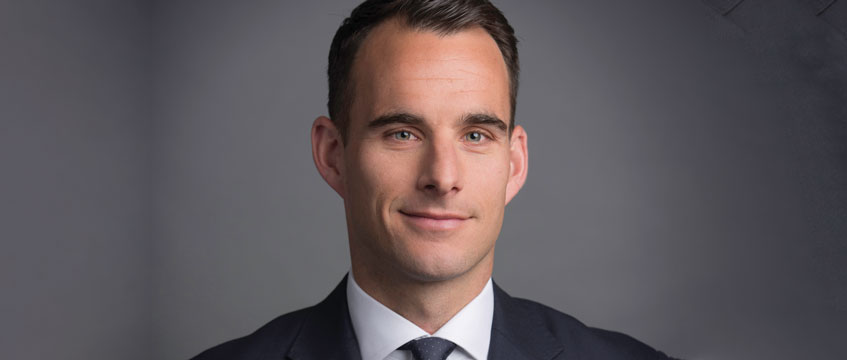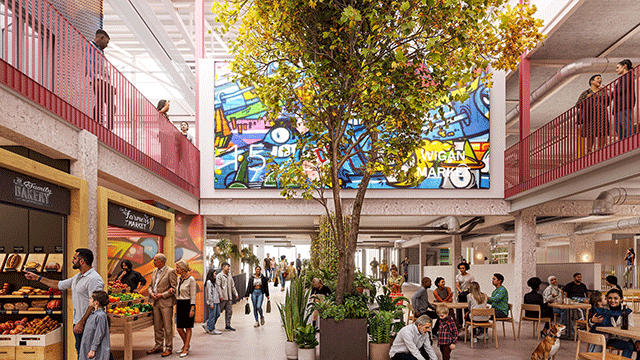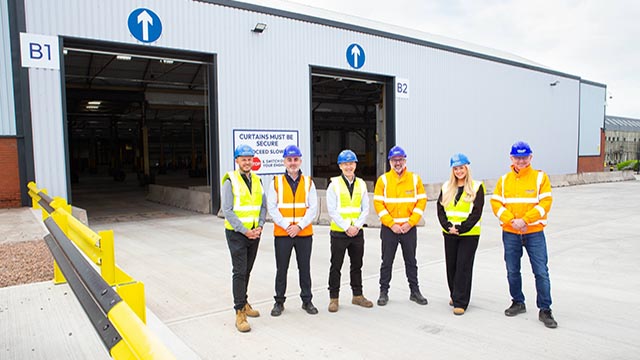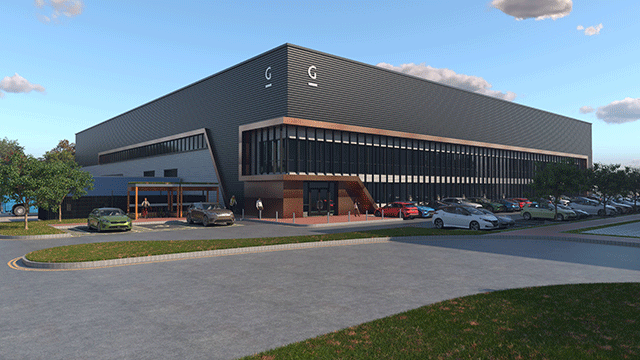For Brookfield, 2019 was a “year of digestion”. So says New York-based Ben Brown, managing partner within the firm’s Real Estate Group. And there was certainly a lot to take in, for both Brookfield and the onlooking global property arena, after the asset manager embarked on a spree of mammoth investments throughout 2018.
It all kicked off in February of that year when Brookfield shook hands with Oaktree Capital Management to buy its serviced apartment business, SACO, for £430m, fighting off competition from Mapletree and Invesco to secure SACO’s 30,000 rooms across the globe, with another 900 rooms in the pipeline.
Then, that summer, it acquired GGP, the second-largest mall owner in the US, for an eye-watering $15bn in August, betting big on a stressed sector that not many investors would dare to touch, before rounding off the year with another gutsy purchase. In December, Forest City Realty Trust was acquired for over $11.4bn, adding 6.3m sq ft of office space, 2.3m sq ft of life sciences assets, 2.2m sq ft of retail space and 18,500 multifamily units to Brookfield’s portfolio.
But that was then. And the big question, as ever in real estate, comes down to what’s next. So, if 2018 was the year of acquisition and 2019 the year of digestion, what does Brown think 2020 will bring?
Brookfield’s retail renaissance
First up, talk turns to retail. Brookfield’s mammoth acquisition of GGP set the tone for the business’s bullish outlook on retail, despite a sector under crippling stress. Interest continued this year as the company was widely reported to be in talks to buy four of JP Morgan Chase & Co’s holdings in four US shopping centres in a deal worth $3.2bn.
Why is this sector catching Brookfield’s eye when many investors wouldn’t touch these assets with a barge pole? “The short answer is we are value investors and contrarian investors,” Brown explains. “We tend to flock where people aren’t and currently that’s generally in the retail space.
“This [sector] is being disrupted by changes in consumer behaviour, technology trends, and demographics. We don’t think that this means that retail is not an investable sector. We frankly think it’s the opposite.”
Over the pond, Brookfield even considered taking a punt on struggling shopping centre operator intu, when EG revealed in October that the business was mulling a takeover bid for intu, valued £2.1bn at the time. Brookfield subsequently walked away from the deal.
Brown says when making retail investments, finding “the right seller and… the right asset at the right value” is critical to unlocking a winning combination. He adds that Brookfield’s retail investment strategy is opportunistic when it comes to eyeing up good deals. “We don’t stick to certain themes, and we don’t say we need to go deploy a bunch of capital into a certain strategy. What we will do is we’ll sort of react to the opportunities we see.”
As for specific locations, New York – where Brookfield’s global headquarters is based – is somewhere retail can be particularly successful, says Brown, just as long as there is “an equilibrium between retailers achieving success and landlords getting certain rents”.
WeWork fallout
Another sector Brookfield has spied an opportunity to sink its teeth into this year and beyond is the serviced office sector. Despite the bad press surrounding WeWork’s fall from grace, Brown says that the demand for this kind of offering cannot be ignored.
“We have close to 140m sq ft of office, so you can imagine the data points we get from our tenants,” he says. “There’s no doubt – based on the data and the information we’re getting from our tenants – that they want and will require more flexibility going forward.”
He says the business is particularly interested in understanding what kind of flexibility big occupiers want – and making sure the Brookfield portfolio caters for this. “Larger tenants, who are important to us, want flexibility,” Brown says. “How do we react to that and how do we offer them flexibility and not have to put an intermediary between us? We’re trying to build that muscle and understand that market.”
Understanding the market has meant that Brookfield has been keeping tabs on the reports surrounding the WeWork fallout. The flexible co-working giant is headquartered in New York and saw losses spiral to $1.25bn for Q3 2019 and axed 2,400 of its staff in a dramatic turn of events.
WeWork’s troubles have also meant that SoftBank Vision Fund, which bet big on the business, has also suffered a multi-billion-dollar loss as a result. Since 2016, WeWork scooped an eyewatering $10bn from Japanese conglomerate SoftBank, dealing the investor a $5bn blow.
Lessons need to be learned from the WeWork saga says Brown. He believes investors need to adopt a more prudent approach. This is not a symptom suffered exclusively by property, he adds. Similar heavy investments have been made in other businesses, such as Uber. But there has been a particular “exuberance of enthusiasm” from investors for flexible office providers. He does add that valuations of these companies based on their growth projections have now been “muted” in light of WeWork’s problems.
While appetite for flexible offices may remain strong, Brown has noticed commercial offices are falling out of favour with investors, who worry that it could be the wrong time to buy these “relatively capital intensive assets” considering that real estate is approaching a late stage in its market cycle.
“I don’t think we share that view to the degree that the market has,” Brown says. “But we have been seeing some potential softness in pricing where it could make interesting buying opportunities, but that’s changing quickly as we continue to live in this really low interest rate environment.”
The day job
In terms of his day-to-day job, Brown is responsible for overseeing commercial operations across New York and Boston – no small feat, considering that the business’s acquisition of Forest City Realty Trust meant Brookfield entered 2019 emerging as the largest commercial office landlord in New York City.
Brookfield’s property blueprint spans 26m sq ft across New York, which is predominantly made up of commercial office space, some retail space and multifamily schemes.
New schemes the business is delivering include the flagship development, Manhattan West, which has been 32 years in the making and is among the most ambitious of schemes Brookfield is carrying out. Once completed, Manhattan West (located in Hudson Yards) will provide 6m sq ft of office space across four buildings, a two-acre public plaza and 240,000 sq ft of retail space, a 164-room hotel, and homes.
Last year marked a major milestone for the scheme. The first and tallest tower to be built, One Manhattan West, opened its doors in October. The 67-storey building is 92% pre-leased to tenants including: consultant Accenture; Ernst & Young; the National Hockey League; law firms McKool Smith and Skadden Arps, Slate, Meagher & Flom.
An anchor tenant, law firm Crevath Swaine & Moore, has signed up for 481,000 sq ft across 13 floors in the second 58-storey office tower to be built, Two Manhattan West, relocating its HQ from Worldwide Plaza along Eighth Avenue.
Which tenants are Brookfield looking to woo for the remaining space? “The ones that need a lot of space and pay the highest rents,” Brown jokes, but says the business is looking at a wide cross-section of New York City’s occupiers, from the financial services to the creative sector to technology.
But it’s hard to stick out in one of the world’s most competitive markets, with competitors rivalling to snatch big name tenants with monster requirements. Last year saw Facebook take up 1.2m sq ft of space just a stone’s throw away from Manhattan West across three buildings in Hudson Yards: 50 Hudson Yards, 30 Hudson Yards and 55 Hudson Yards. Meanwhile, rumours are circulating that Google is set to sign for 1.3m sq ft at St John’s Terminal in New York City’s West Village, and that Apple is on the hunt for 750,000 sq ft of space, having reportedly taken a look at a variety of options, including the iconic Farley Post Office.
Competition is fierce. So how does Brookfield Properties ensure Manhattan West stands out from the crowd? “The biggest thing that we’ve seen with tenants… is that need and that want for amenities, for some sense of community and sense of place,” he says. “Our project delivers that. We sit right on Ninth Avenue, the location where you’re taking trains in from New Jersey Transit, from Amtrak, from the subway and eventually Metro North. It is the largest, most heavily trafficked commuter hub in New York.”
2020 downturn?
As the real estate industry enters 2020 and the possibility of an economic downturn hangs like a dark cloud over the market, is Brookfield preparing for a tougher market climate?
Brown is optimistic that the market will be stable. “While human nature tells you we’re late in the cycle and you should expect a recession, I don’t see any of that risk.”
He is particularly bullish on the New York market. “We seem to be living in this constant low interest rate environment and, at least for real estate owners, that’s been really helpful, that’s been a positive tailwind. So it’s actually been a quite a boon for real estate, from a New York context.”
As for Brookfield’s real estate strategy next year, it looks like it will be the year of regulation. “I think patience will pay off,” says Brown. “We need to continue to be pretty disciplined in what we do in terms of new investments. Like I said, the market feels pretty good, the fundamentals feel pretty good. So it’s taking advantage of where we’re at in the market today.
“I think we will continue to find interesting opportunities,” Brown says. “If we don’t get out over our skis.”
‘It will be a great day when Brexit finally gets sorted’
Brown was working in London when he heard the news that the British public had voted to leave the EU.
After spending three years in the city, Brown was taken aback by the result. “I was completely shocked it happened, and then I thought it would be sorted out,” he says.
Over two and a half years later, Brown cannot believe that no progress has been made. “Brexit still hasn’t been resolved, it is shocking to me,” he says. “The most impactful thing is long-term uncertainty.”
He predicted at the time of the referendum result that Brexit would create a flurry of deals, which has not been the case. “I anticipated it creating more interesting buying opportunities than it has,” Brown says. “But I think the market reacted very rationally. That’s probably a good thing.”
Brexit is not as big an issue as it has been reported to be, Brown believes. “It will be a great day when Brexit finally gets sorted. Any stability is better than instability. If you look back, it will probably be fair to say, from just wearing a real estate hat, that Brexit wasn’t s0 detrimental to the London market or the UK market.”
To send feedback, e-mail lucy.alderson@egi.co.uk or tweet @LucyAJourno or @estatesgazette











